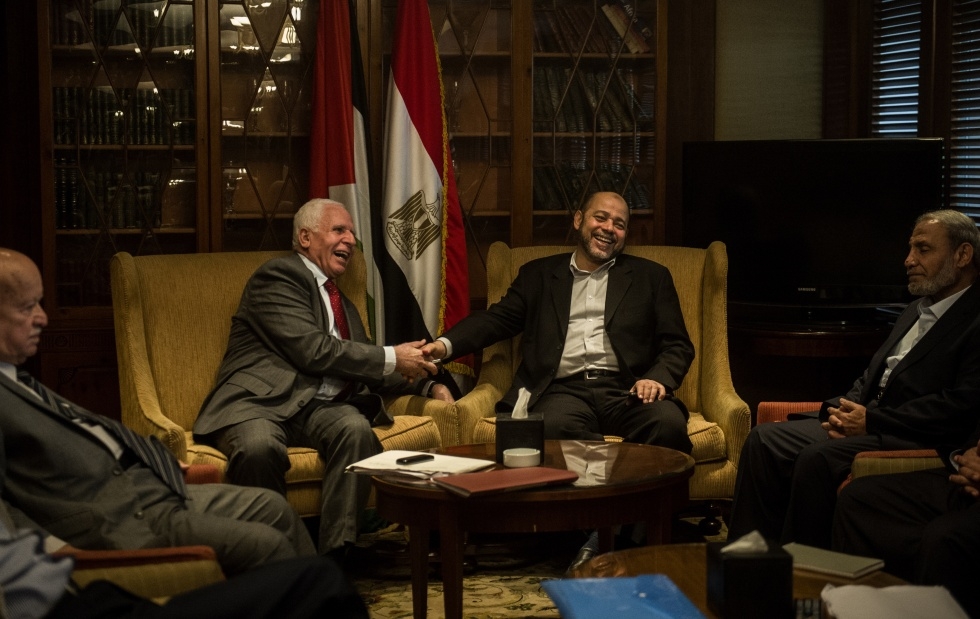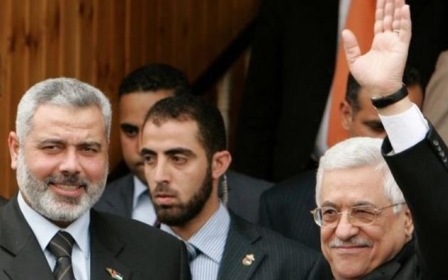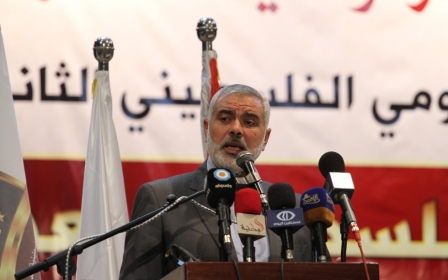Hamas, Fatah in 'positive' talks on reviving unity

Talks in Cairo between rival Palestinian factions Hamas and Fatah on reviving their unity government were taking place in a "positive atmosphere" on Wednesday, officials said.
The two-day talks, which began early Wednesday, come after a joint Palestinian delegation and Israel agreed to hold separate indirect talks in late October to thrash out a lasting truce in Gaza.
"There is a positive atmosphere in which the talks are being held," senior Hamas official Ezzat al-Rishq told journalists, as representatives of the two groups went into a fresh round of discussions after a mid-day break.
The talks will focus on "the return (of the unity government) in the Gaza Strip and the implementation of its authority without obstacles," said the head of Fatah's delegation, Azzam Al-Ahmad.
The talks are crucial for internal Palestinian divisions to be set aside and the two rival factions to agree on a unified strategy during talks with Israeli negotiators.
The Palestinian rivals set up a unity government of independents in June but are at loggerheads again, with president Mahmud Abbas threatening to end the administration and accusing Hamas of running a "parallel government" as de facto ruler in the Gaza Strip.
Hamas in turn accuses Abbas's Palestinian Authority, headquartered in Ramallah, of not paying its 45,000 employees in Gaza.
The unity government is also crucial ahead of an international donor conference on October 12, to be hosted by Cairo, on the reconstruction of Gaza.
Under Egyptian mediation, Israel and the Palestinians agreed on August 26 to a ceasefire that ended a 51-day Israeli military onslaught on Gaza, in which Hamas fighters were engaged in.
The Israeli offensive ended with an agreement to hold future talks on Palestinian demands to end an eight-year blockade of Gaza and exchange prisoners in Israeli jails for the remains of Israeli soldiers killed in Gaza.
New MEE newsletter: Jerusalem Dispatch
Sign up to get the latest insights and analysis on Israel-Palestine, alongside Turkey Unpacked and other MEE newsletters
Middle East Eye delivers independent and unrivalled coverage and analysis of the Middle East, North Africa and beyond. To learn more about republishing this content and the associated fees, please fill out this form. More about MEE can be found here.



